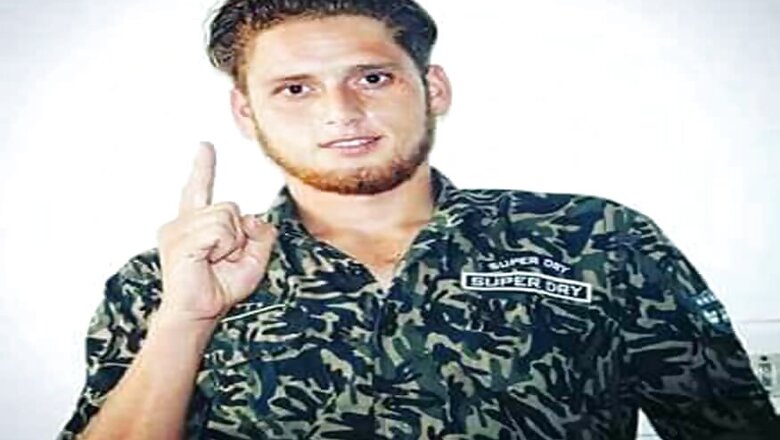
views
New Delhi: By early March, a new surrender and rehabilitation policy, the first in 14 years, will be launched in Kashmir.
The policy, which may be called 'Reintegration Scheme', may reward family members or friends of surrendered militants who help get them back into the mainstream.
Several senior officers working on the draft policy shared details of the scheme with News18.
The joint effort by the Ministry of Home Affairs and the three security agencies in the Valley — J&K Police, Army and the CRPF — will be the most ambitious outreach program to get active militants back into the society.
According to the draft, the scheme will reward those who help bring the militants back, ensure the protection of the surrendered militants and their families, ensure that the surrendered militants don't suffer a prolonged trial, and identify jobs for them.
"We will not call it a ‘surrender’ scheme because it carries a negative connotation. There are a few alternative names we are considering, one of which is ‘Reintegration Scheme’," a senior police officer said.
"We are working on a mechanism to reward those who bring back a militant financially and by giving them citations. The idea is to create public goodwill for those who want militancy in the Valley to end, to stop the recruitment of militants into these terror groups," the officer added.
This aspect of the scheme has been inspired from the case of Majid Khan, who was part of the Lashkar-e-Toiba and surrendered to security forces. Khan's was a high profile surrender. The aspiring footballer, who joined the Lashkar-e-Toiba and picked up the gun in November, shunned militancy following a successful social media campaign appealing for his return.
Following his surrender, the LeT also issued a statement saying it had "allowed" Khan to return for the larger good, to tend to his ailing parents.
But checks and balances will be put in place to prevent abuse of the policy. A senior Home Ministry officer said they had received reports of abuse of a similar policy in Naxal-affected Bastar in Chhattisgarh.
"From our experience in areas like Bastar and in areas in the North East, we have found that a surrender policy is often abused in collusion with some local players. It often becomes a revenue source for a lot of unscrupulous elements. To avoid this, we had to work out a mechanism to identify whether the person surrendering is really a militant," said a source in the Home Ministry.
According to the source, a screening committee will be formed, drawing members from the police, Army and the CRPF, along with a civilian representative of the state.
"Having a civilian representative in the screening committee was quite important for us. We wanted to avoid the possibility of collusion between the forces in this process. So a civilian representative will also do a background check on the surrendered militant to identify the authenticity of the case," the Home Ministry source added.
The surrendered militant will have the choice of location.
"We will give the militant a choice to either go back to the home he was living in or relocate to a different place, even outside the state. In case he wants to return to his home, we will provide the family with protection, and in case he wants to emigrate with his family to some other part of India, we will try and facilitate the process as much as we can," a senior police officer said.
The ‘Reintegration Scheme’ will also try to ensure that the surrendered militant doesn't go through the rigorous judicial process, which in turn may deter other militants who want to surrender from giving up arms.
"It is a tricky situation. If a militant surrender to any of the three forces, the immediate need is to produce him before the court. But we have found ways of avoiding this process in the North East and we are working towards finding a mechanism in Kashmir also whereby the militant doesn't have to be produced before the court," the Home Ministry official said.
Sources told News18 that when a senior officer first mooted the surrender scheme last year, Chief Minister Mehbooba Mufti had given it a cold shoulder. But following repeated proposals by all three agencies, and a nudge from the Home Ministry, the CM agreed to it.
When asked whether the surrender policy was the brainchild of Home Ministry-appointed interlocutor to Kashmir, Dineshwar Sharma, a senior officer answered in the negative.
"The larger scheme in which some 4,000 first-time stone-pelters have been given amnesty was his proposal, but the surrender policy is not his brainchild. This was a proposal that was being debated well before his appointment."
All agencies involved have got their hopes pinned on the policy. "It took us one year to formulate a surrender policy for Naxals in and around Bastar. But after its implementation, we started getting small fries to begin with, and then later Local Area Commanders [LoCs]. Last year, we got top Maoist leaders like Kundan Pahan and Baleshwar Oraon who carried a reward of Rs 25 lakh. Without spilling a drop of blood, we achieved a lot and that's what we're hoping to do here."
The Home Ministry announced that a surrender policy for militants in Kashmir was in the pipeline in a statement issued to the press on Wednesday. In the statement, the Home Ministry asked the Jammu and Kashmir government to "formulate new surrender and rehabilitation policy" and provide surrendered militants "with economic rehabilitation enabling them to return to mainstream”.


















Comments
0 comment